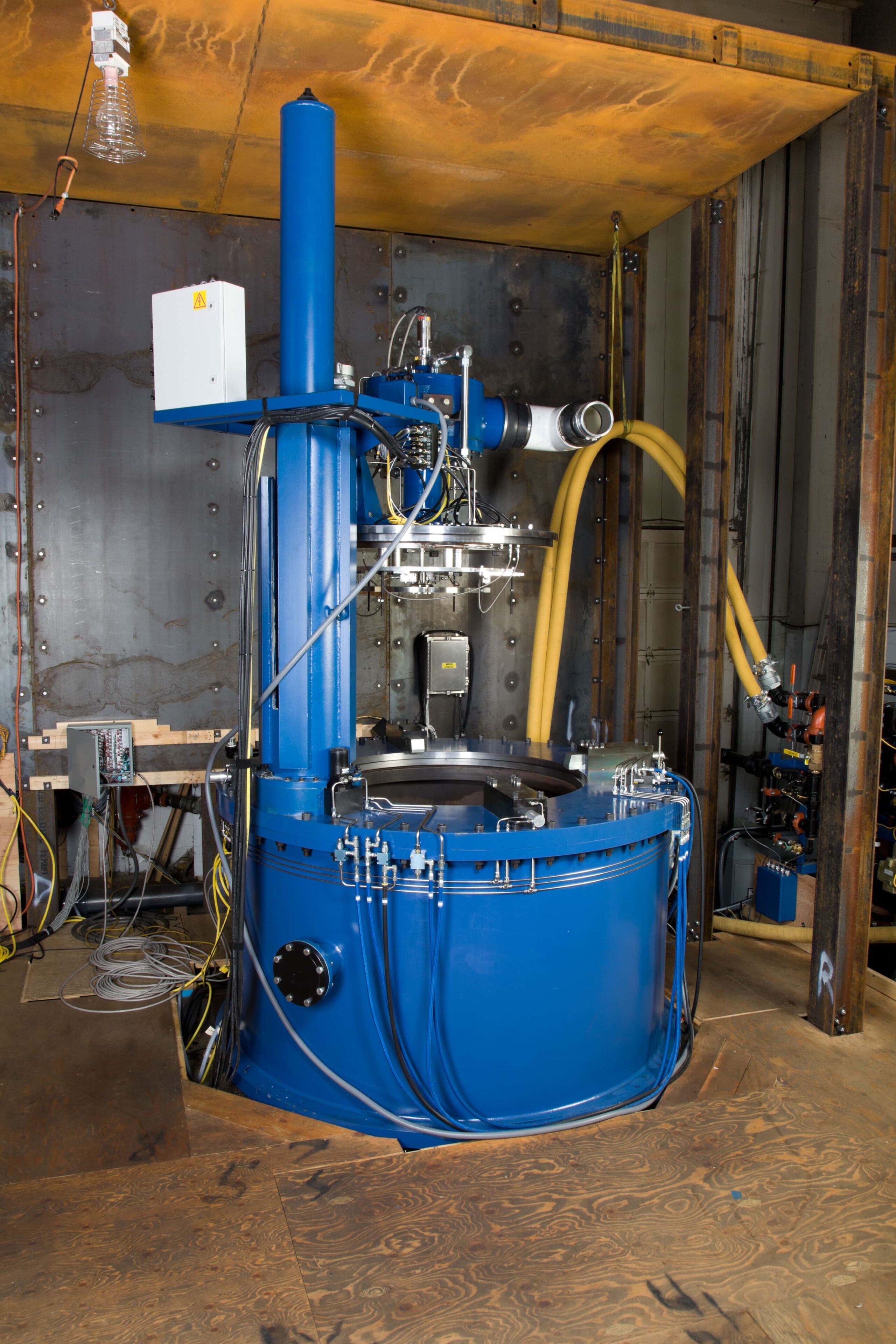Elevated HCF Testing
April 1, 2012
Test Devices recently demonstrated its unique Aerodynamic Pulse Generation (APG) technique to perform high-cycle fatigue (HCF) tests in elevated temperature conditions. This allows a more realistic way for OEMs to evaluate the durability and behavior of the rotating airfoils.
The APG method uses the pumping action of the blades in partial atmosphere and can be employed with additional external heating to allow testing in an elevated temperature condition.
The APG technique provides a method for evaluating new high temperature blade designs and coatings in complex engine-like conditions, as well as evaluating damper effectiveness, and characterizing the dynamic response of the assembled hardware and coatings. This is specifically true for systems that may exhibit different performances over temperature ranges.
Dr. Hiro Endo, VP Engineering at Test Devices, commented: “Dynamic Spin® Rig testing can offer more comprehensive means to validate analytical models and blade designs. The Dynamic Spin® Rig can test the actual component with a true boundary condition of the blade, while applying and independently controlling the centrifugal and vibratory loads, temperature and atmospheric elements. This capability allows the engineers and scientists to examine influence of the range of factors that affect the integrity and durability of the bladed rotor assembly in a more ‘pure form’ that reflects the condition in the operating gas turbine engines.”


